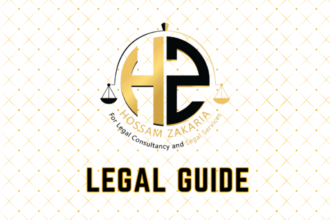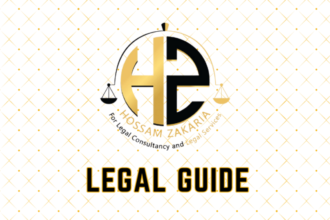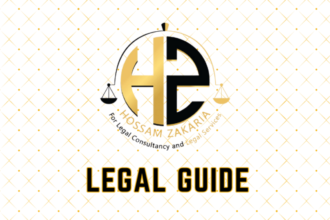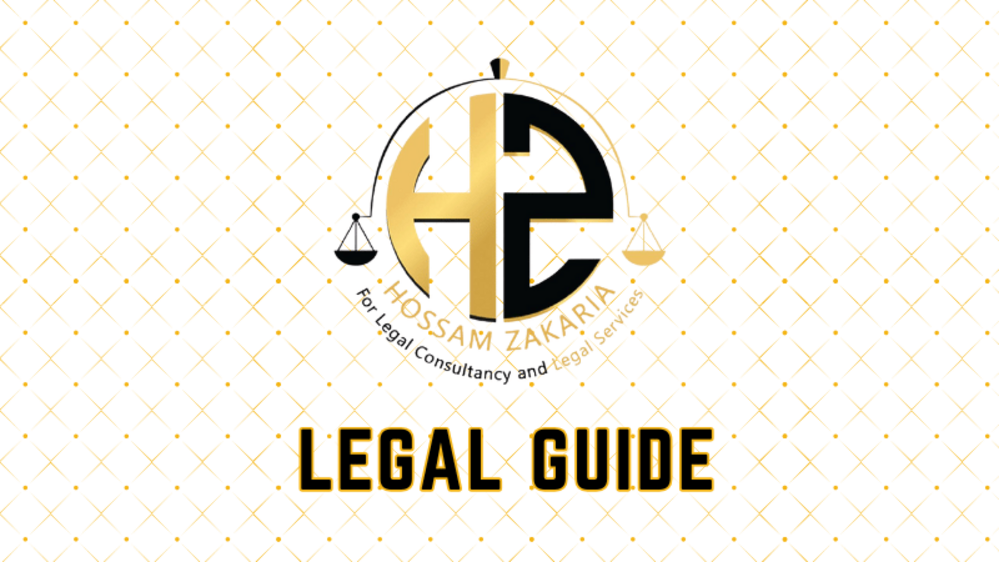Introduction: The Growing Importance of Arbitration for UAE Enterprises Engaging in Qatar
In today’s dynamic cross-border business environment, UAE businesses and executives are increasingly interacting with organizations, partners, and government entities in Qatar. This surge is driven by deepening trade ties, collaborative ventures, and expanding investments between the GCC’s two powerful economic hubs. With both countries striving to nurture investor confidence and smooth dispute resolution, arbitration has emerged as the preferred mechanism for settling commercial disputes.
Recent legislative reforms in Qatar, coupled with evolving judicial attitudes in the UAE, underscore the need for UAE businesses, HR managers, and legal teams to develop nuanced strategies for navigating Qatar’s main arbitration institutions. As both nations advance toward harmonized, business-friendly dispute resolution frameworks, understanding the specifics of arbitration institutions in Qatar is not merely beneficial—it is essential for business continuity, compliance, and mitigated risk.
This article, authored by senior UAE legal consultants, provides in-depth analysis, actionable insights, and comparative frameworks to empower UAE organizations and executives to make informed decisions when leveraging arbitration in Qatar. We will address applicable Qatari laws, practical guidance on engaging with institutions like the Qatar International Court and Dispute Resolution Centre (QICDRC) and Qatar International Centre for Conciliation and Arbitration (QICCA), explore compliance risks and best practices, and present benchmarks against UAE and international standards.
Table of Contents
- Context and Legal Framework: Arbitration in Qatar and its Significance for UAE Businesses
- Key Qatari Laws and Leading Arbitration Institutions
- Comparative Analysis: UAE and Qatari Arbitration Laws
- Institutional Overview: Choosing the Right Arbitration Centre in Qatar
- Case Studies: How Arbitration in Qatar Impacts UAE Corporates
- Risk of Non-Compliance: Penalties and Strategic Considerations
- Compliance Best Practices for UAE Businesses Operating in Qatar
- Future Outlook: Evolving Trends, Legal Developments, and Proactive Approaches
- Conclusion: Key Takeaways and Strategic Recommendations
Context and Legal Framework: Arbitration in Qatar and its Significance for UAE Businesses
The Commercial Landscape in the GCC: Why Arbitration Matters
The GCC’s integrated economy has driven a sharp increase in cross-border contracts, investments, and partnerships. For UAE businesses, Qatar sits among the top trading partners, with significant mutual projects in energy, infrastructure, technology, logistics, and finance.
Such commercial dynamism comes with inevitable disputes—ranging from contractual disagreements and regulatory challenges to employment-related claims. Arbitration, recognized for its flexibility, confidentiality, and enforceability, is the resolution method of choice in high-value, complex cross-border transactions. It is increasingly stipulated in contracts not just by international corporations in Qatar, but by leading UAE conglomerates and SMEs expanding their regional footprint.
The legislative frameworks in Qatar and the UAE have both experienced significant modernization in the last decade, with direct implications for how businesses select and utilize arbitration institutions.
Key Legal Sources: Qatar and UAE
Major reforms in both countries have shaped the approach to arbitration:
- Qatar: Law No. 2 of 2017 on Issuing the Civil and Commercial Arbitration Law (Qatari Arbitration Law), aligned with the UNCITRAL Model Law on International Commercial Arbitration.
- UAE: Federal Law No. 6 of 2018 on Arbitration, supplemented by Ministerial Guidelines, Cabinet Resolutions, and the UAE Ministry of Justice’s directives.
Key Qatari Laws and Leading Arbitration Institutions
Qatari Arbitration Law: Modernization and International Alignment
Qatar’s Law No. 2 of 2017 marked a decisive shift towards internationally-accepted standards, providing:
- Broad autonomy for parties in defining arbitral rules and procedures
- Limited scope for challenging awards
- Recognition and enforcement of foreign and domestic awards in line with the New York Convention (to which Qatar and the UAE are both signatories)
The law applies to both domestic and international arbitrations conducted in Qatar, particularly where the seat of arbitration is in Qatar, or the parties have agreed to arbitration under Qatari laws.
Leading Arbitration Institutions in Qatar
Two primary institutions facilitate arbitration services adhering to best global practices:
- Qatar International Centre for Conciliation and Arbitration (QICCA): Established under the Qatar Chamber of Commerce and Industry, QICCA specializes in commercial disputes, construction, banking, and trade matters, and offers regionally-adapted rules.
- Qatar International Court and Dispute Resolution Centre (QICDRC): Based in the Qatar Financial Centre, QICDRC provides an English-language, common law dispute resolution environment and is particularly favorable for international financial and investment disputes.
Both institutions offer state-of-the-art facilities, expedited procedures, specialist arbitrators, and are actively involved in developing regional legal talent.
Comparative Analysis: UAE and Qatari Arbitration Laws
UAE businesses and HR managers must understand the key differences and similarities between the Qatari and UAE arbitration frameworks when drafting contracts, deciding on dispute resolution clauses, or responding to disputes that require cross-border enforcement.
| Key Area | Qatar (Law No. 2 of 2017) | UAE (Federal Law No. 6 of 2018) |
|---|---|---|
| Model Law Inspiration | UNCITRAL Model Law adopted, with some local adaptations | UNCITRAL Model Law adopted, with UAE-specific modifications |
| Scope | Applies to commercial disputes (local and international) | Encompasses all arbitrations with seat in UAE; foreign awards governed by NY Convention |
| Language | Arabic (with English officially accepted in institutions like QICDRC) | Arabic is default; English accepted in DIFC/ADGM |
| Interim Measures | Arbitral tribunals empowered; court support possible | Broad tribunal powers and court assistance recognized |
| Challenges to Award | Limited, mostly on procedural/public policy grounds | Limited, several explicit grounds |
| Enforcement | Streamlined via New York Convention; Qatari courts supportive | Expedited procedures under NY Convention; Emirates courts increasingly supportive |
It is essential to tailor dispute resolution provisions in contracts to reflect these differences or risk procedural delays and cost escalations.
Suggested Visual: Arbitration Law Comparison Table
Consider adding a visually engaging tabular infographic comparing process stages, timelines, and enforcement rates across UAE and Qatari frameworks. This assists legal teams in making evidence-based choices for dispute resolution seat and institution.
Institutional Overview: Choosing the Right Arbitration Centre in Qatar
QICCA: Best for Regional Commercial Disputes
For construction, contracting, and intra-GCC trade disputes, QICCA offers Qatari law-adapted rules, bilingual administration, competitive fee structures, access to experienced local and non-local arbitrators, and alignment with sector-specific dispute complexities. It is recognized for efficiency and cultural sensitivity.
QICDRC: International Standard for Cross-Border Corporate Disputes
QICDRC’s governance structure is modeled after global common law courts, offering English-language proceedings, expedited timelines, and global panel arbitrators. It is particularly suited for disputes involving global finance, investments, and sophisticated corporate matters.
UAE businesses in finance, technology, or projects involving international parties should consider QICDRC for enforceability, neutrality, and procedural comfort.
| Feature | QICCA | QICDRC |
|---|---|---|
| Applicable Sector | Trade, Construction, Commercial | Finance, Corporate, Investment |
| Procedure Language | Primarily Arabic (English upon agreement) | Primarily English |
| Legal Framework | Qatari Law | Common Law (QFC Rules) |
| Arbitrator Panel | Regional and International Experts | International, with common law focus |
| Enforcement | Qatari courts, regional cooperation | Broad international recognition, QFC regime |
Case Studies: How Arbitration in Qatar Impacts UAE Corporates
Case Study 1: Construction Dispute between UAE Contractor and Qatari Developer
Background: UAE-based contracting firm enters a joint venture for a major infrastructure project in Doha, stipulating QICCA arbitration in the contract.
Event: Payment and timeline disagreements arise; the UAE party triggers arbitration at QICCA.
Outcome: Dispute resolved within nine months, with interim relief granted, and award promptly enforced via Qatari courts. UAE company preserves business relationship and secures compensation without prolonged litigation.
Case Study 2: Enforcement of QICDRC Award in UAE
Background: UAE technology firm secures favorable QICDRC award in a licensing dispute with a Qatari partner.
Event: The Qatari counterparty holds assets in Dubai.
Outcome: UAE courts, in line with Federal Decree and the New York Convention, expedite enforcement of the foreign arbitral award. The process is streamlined due to alignment between the jurisdictions and institutional credentials.
Practical Insights from Both Cases
- Clarity in arbitration clauses—defining institution, seat, applicable law, language, and enforcement mechanism—is critical for avoiding costly jurisdictional challenges.
- UAE businesses should ensure robust due diligence on institutional rules and compatibility with intended dispute types before signing contracts.
Risk of Non-Compliance: Penalties and Strategic Considerations
Failing to adhere to proper arbitration procedures, or selecting unsuited arbitration clauses, can result in:
- Delays in enforcement of awards or outright denial by local courts (in Qatar or UAE)
- Unintended exposure to local litigation, regulatory penalties, or reputational harm
- Loss of confidential business information
- Missed opportunities to access interim relief (such as asset freezes)
Non-Compliance Penalty Comparison Table
| Risk | Qatar | UAE |
|---|---|---|
| Error in Arbitration Clause (Institution/Seat) | Jurisdictional challenges, award unenforceable | Award may not be recognized, appeals possible |
| Failure to Notify Counterparty Effectively | Delay or set aside award on procedural grounds | Risk of award annulment |
| Evading Interim Measures | Court sanctions, contempt proceedings | Potential court-driven enforcement measures |
Suggested Visual: Compliance Checklist Template: Outline a practical checklist guiding clients on essential arbitration compliance steps across both Qatar and UAE, from preliminary contract vetting to final enforcement.
Compliance Best Practices for UAE Businesses Operating in Qatar
Drafting Robust Arbitration Clauses
Legal best practices include:
- Explicitly naming the arbitration institution (QICCA or QICDRC)
- Stipulating the applicable law and language
- Defining the seat of arbitration and rules to govern procedure
- Ensuring compatibility with enforcement regimes in Qatar and UAE
Proactive Engagement with Legal Counsel
- Consult UAE legal experts familiar with Qatari institutional nuances at contract formation and before any dispute arises
- Monitor legal developments in both countries, especially following recent reforms and judicial guidelines
Due Diligence and Training
- Periodically review dispute resolution policies and train staff on institutional rules and compliance touchpoints
- Engage with arbitration centres’ pre-arbitration consultancy services to clarify institutional preferences and timelines
Ongoing Contract Management
- Audit all commercial agreements to update arbitration clauses for compatibility with current laws, leveraging guidance from Federal Decree UAE 2025 updates and Qatari statutory amendments
Future Outlook: Evolving Trends, Legal Developments, and Proactive Approaches
Harmonization and Modernization across GCC
Continued regional integration and ongoing dialogue between UAE and Qatari regulators suggest further harmonization in arbitration practices. Both countries are expected to expand digital arbitration services, adopt expedited online procedures, and pilot ‘emergency arbitrator’ protocols, further improving cross-border commercial agility.
Emerging Risks and Legal Safeguards
- Recent changes to enforcement policies and judicial training in Qatar and the UAE are designed to reduce frivolous set-aside attempts and improve cross-recognition of awards
- HR managers and compliance officers must track these regulatory shifts to maintain operational certainty
Conclusion: Key Takeaways and Strategic Recommendations
As trans-GCC commercial links deepen, UAE businesses and executives must treat arbitration clause selection and institutional engagement as strategic imperatives, not afterthoughts. Choosing the correct Qatari arbitration institution, drafting precise clauses, and remaining vigilant to evolving legal frameworks are essential to avoiding costly disputes, reputational harm, and compliance lapses.
By leveraging the insights and recommendations in this guide, UAE organizations can confidently navigate arbitration institutions in Qatar—protecting their interests, promoting commercial certainty, and maintaining their competitive edge in the region. Proactive engagement with experienced legal counsel remains the most effective tool for minimizing risk and optimizing outcomes amid ongoing legal developments.
For tailored advice on drafting arbitration clauses, managing GCC cross-border disputes, or ensuring compliance with the latest Qatari and UAE legal updates, do not hesitate to contact our UAE legal consultants.



